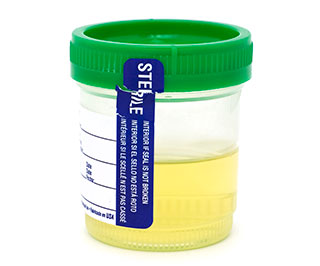 Image credit: Jesus Jauregui/Thinkstock
Image credit: Jesus Jauregui/Thinkstock
Patients who may have had a toxic response to a pharmaceutical agent or overdosed on a drug don’t always yield positive toxicology results. Laboratories can help clinicians understand what these negative results mean to produce more informed decisions on further testing.
A morning short course on July 29 at AACC’s Annual Meeting & Clinical Lab Expo, “When Toxicology Results and Clinical Presentation Do Not Correlate: How to Communicate With Clinicians and Guide Further Testing Decisions” (74107), will provide helpful pointers on how to effectively communicate with doctors and make suggestions on additional tests, including whether specimens should be sent to an outside laboratory.
“This session focuses on negative toxicology reports due to recently introduced designer drugs, including bath salts and spices. These designer drugs cannot be detected by routine toxicology screen,” Amitava Dasgupta, PhD, professor of pathology and laboratory medicine at the University of Texas at Houston Medical School, told CLN Stat.
In other examples, toxicology screens cannot detect the date rape drug Gamma hydroxybutyrate, or GHB. Rohypnol is a benzodiazepine, but at very low levels may also escape detection, Dasgupta explained.
Dasgupta will be moderating the session and co-presenting with Kara Lynch, PhD, an assistant clinical professor at the University of California, San Francisco, and associate division chief with the clinical chemistry and toxicology laboratory at San Francisco General Hospital.
Dasgupta will start things off by discussing false negative toxicology results, and how laboratorians can effectively communicate with doctors and plan for further testing. Lynch will follow up with cases and test strategies for the “poisoned patient.”
“For drug overdose patients, it is important to identify the drug in order to guide treatment decisions and eliminate the need for the medical work-up of other conditions on the differential diagnosis,” according to a course summary. “Understanding specific symptoms associated with certain abused drugs and pharmaceutical agents is helpful in deciding which specific drug tests should be performed as the next step.” Labs should also be aware of pros and cons associated with available testing methodologies such as tandem and high-resolution mass spectrometry.
Register online to attend this session and learn how you can guide additional testing on negative toxicology test results.